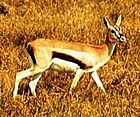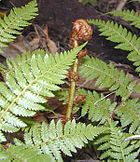Biological experiment
|
||||
Biology deals with the study of life and organisms.
|
Biology is the natural science that involves the study of life and living organisms, including their physical structure, chemical composition, function, development and evolution. Modern biology is a vast field, composed of many branches. Despite the broad scope and the complexity of the science, there are certain unifying concepts that consolidate it into a single, coherent field. Biology recognizes the cell as the basic unit of life, genes as the basic unit of heredity, and evolution as the engine that propels the creation of new species. Living organisms are open systems that survive by transforming energy and decreasing their local entropy to maintain a stable and vital condition defined as homeostasis. See glossary of biology.
Sub-disciplines of biology are defined by the scale at which life is studied, the kinds of organisms studied, and the methods used to study them: biochemistry examines the rudimentary chemistry of life; molecular biology studies the complex interactions among biological molecules; cellular biology examines the basic building-block of all life, the cell; physiology examines the physical and chemical functions of tissues, organs, and organ systems; ecology examines how organisms interact in their environment; and evolutionary biology examines the processes that produced the diversity of life.
...
Wikipedia




